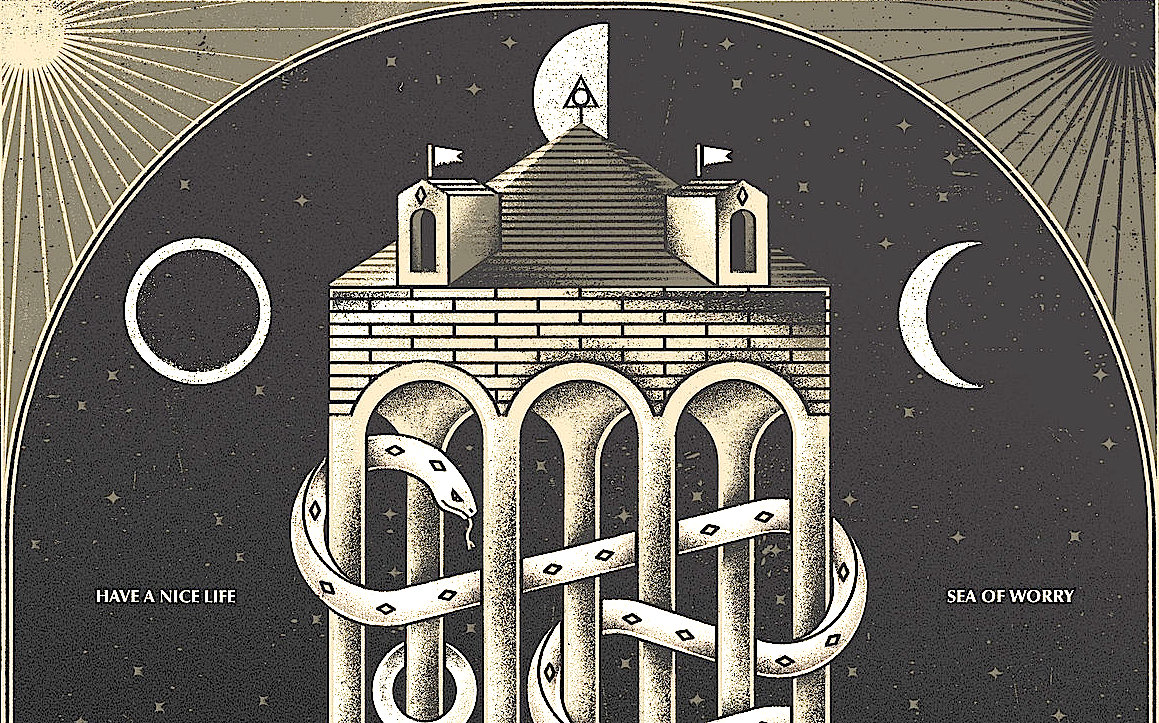

Somebody asked me the other day, “How’d you look after your voice?” And I can’t think of anything to say. The things I’ve written since the ’80s, I’ve just played it always a little bit safer - stayed within my comfort range. I’d sometimes get a bit too emotionally involved in it, and sometimes that was a good thing, sometimes it wasn’t so good.

I was always pretty stoned on all those records as well, so that added to the emotion of some of it. In the early days I would just go for anything, and sing very badly. Well, it’s certainly changed over the years as I’ve learnt to try and control it, and to not really push it. Has your relationship to your voice, or your facility with it, changed over the years? Johnnie Ray had a kind of tragedy in his voice, and there was something about his voice that just stayed with me - maybe it’s influenced me a little bit in a way, just to start a note and to move to a note. My grandfather left me a collection of funny old 78s, and just before he died he bought a couple by Johnnie Ray. I always really loved Cliff Richard in England, ’cause he was the first real star that we had for us English girls and boys.

I did his songs when I was at school - that’s pretty much all I used to do. When I came to America in ’68, one of the first things I did was go to Lubbock in Texas - and realized that it’s not a cute little western town, it’s a big flat land with oil wells going up and down. I don’t sound anything like Buddy Holly, but Buddy was my hero.

In those early days, did you ever consciously model your singing voice after anyone else’s? I was lucky enough, with “Forever Autumn,” to get chosen for that. I’m not really a singer - I’m a guy who does these songs. I don’t find it easy to listen to my own voice. So I really came to the Moodies with the purpose of getting my songs done. He told me then that just to survive in the business you have to create your own identity, and the best way of doing that is through songs. My first job was with a rock ’n’ roll singer called Marty Wilde, just playing guitar for him when I was 17 when I started. From the ’80s on, I was always harmonizing with myself on records - so the girls and myself, and Mike as well, are able to reproduce that easier.ĭid you always feel confident as a singer? It’s very much around the vocal sound of us, as well, including all the sort of Moodies harmonies. Karmen, on flute and harmonica and vocals, has added another dimension - I’m able to bring those kind of Ray Thomas / Moodies flute things back into it a bit more. And we’ve swapped things around the last few tours. They’re always a pleasure to play, because some of them I just haven’t done on stage before. So this is more like the original way of looking at it, which is nice.ĭo you have any tricks for keeping the older songs fresh or fun to play? But of course, on stage, that was always difficult to do with the Moodies, with two drummers, and everything had to rise in level, and it was all electric. In some ways it’s a lot truer to the records, because the records were mixed with acoustic guitar and mellotron and keyboards up front, and drums and bass just maybe a little bit further back. I’ve brought my acoustic guitars out from home. I’m working with three young musicians who love this music and who are a great support to me. I do songs that I’ve written - deeper cuts with the Moodies, some solo things, some things that I never got to do with the Moodies that just never worked in a loud situation. Then again, as he chatted at length from his hotel in Denver - about the acoustic solo tour he’s on (with shows Friday night in Big Bear Lake and Saturday in Ventura), about legacy, and about the only album, 1978’s “Octave,” that the band recorded in the States - he suddenly realized that, wait, maybe something precious was lost… The stuff he and the “Moodies” released back in the day is all that really matters - they were inducted into the Rock and Roll Hall of Fame last year - and he’s a bit cynical about the insatiable monetization by Universal and other record companies of every last scrap of recorded material. Hayward, who turns 73 in October, isn’t too worried. Along with Elton John, Chuck Berry and Ella Fitzgerald, they listed the Moody Blues as artists whose priceless tapes may have burned up. The New York Timesrecently blew the lid off of the 2008 inferno, which destroyed untold original masters and recordings, and the shocking coverup. “There were much more important people to call or to speak about that,” Hayward says, in his typically self-effacing, English way. Nobody called Justin Hayward about the fire on the Universal Studios Hollywood lot - not Universal Music Group, certainly, but also no reporters.


 0 kommentar(er)
0 kommentar(er)
